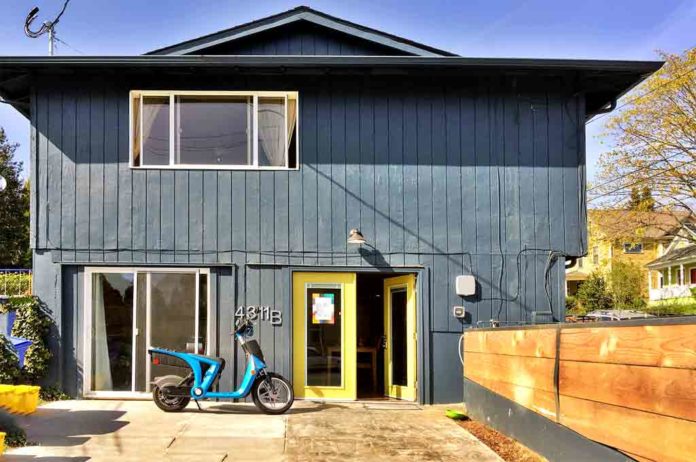By Daniel Bachhuber
Here’s a secret: not only is there a way out of the housing crisis, but you could make money from it too.
“Accessory Dwelling Unit”, or ADU for short, is a broad label used for a variety of secondary living spaces on or in an existing primary residential property. They can be interior (e.g. converting an unnecessary bonus room) or detached (e.g. a small structure at the back of your house). If you built an ADU in this market, you could easily rent it out and make up to $1,000/month.
However, there is a caveat. Building an ADU in Tualatin is hampered by a single clause of the Tualatin Development Code: adding an ADU requires one off-street driveway spot, in addition to the two driveway spots required for the primary residence. Importantly, garage space doesn’t count towards the requirement. Even though your neighbor can park five cars in their driveway and on the street, you can’t build an ADU at your house if it only has a two car driveway. According to Kol Peterson, author of Backdoor Revolution: The Definitive Guide to ADU Development, the off-street parking requirement is one of three “poison pill” regulations that significantly hamper ADU development.
Tualatin, like much of the Portland Metro area, has significant problems with housing affordability and availability. Buying a new house at $500,000 requires a family to save over $100,000 for the down payment, and then pay $2,400/month for mortgage and property tax. Rents have skyrocketed too: two bedroom apartments now start at $1,400/month. And this isn’t just a low-income problem. More and more in the community are feeling the financial stress of these costs.
ADUs are an under-appreciated housing option. They can increase housing availability while also fitting within and preserving the aesthetic of the neighborhood. They’re typically between 300 and 800 square feet, good for one or two people to live in. An interior ADU doesn’t typically require structural modifications, and its door is on the side or back of the house. Detached ADUs are usually located in the back of the house, with access along the side.
Picture your standard, single-family suburban house in Tualatin. Many houses are 2,000-3,000 square feet and have a bonus room over the garage. Other houses might have a basement, or a large-enough lot for a small structure in the backyard. Any of these spaces could be converted to an ADU. An ADU is simply a secondary, yet complete, living space (kitchen, bath, and bedroom) on the lot of a primary dwelling.
For a downsizing senior, building and living an interior ADU may be a way to stay in their home while earning cash from the larger part of their house. For a younger couple, building and renting out an interior ADU may permit them to afford closer housing to work than they otherwise could. And, for empty nesters, building an ADU could help their kids afford to start a family much closer to home.
Last August, Oregon passed Senate Bill 1051 which requires all cities to allow ADUs. While the specific definition of “allow” isn’t included in the bill, technical guidance from the Oregon Department of Land Conservation and Development strongly recommends dropping the off-street parking requirement. Cities that have already removed this requirement have seen a strong uptick in permitted ADUs.
Yet, even with this official recommendation, Tualatin has no plans to drop the off-street parking requirement from its Development Code. A poorly defined parking requirement could mean only a few houses are eligible to build ADUs.
There’s no silver bullet to the housing crisis. The dip in home building caused by the Great Recession is out of our control, as is the trend of people moving to Oregon. But, doing nothing and hoping the problem goes away will only cause more problems in the long-term. Instead, Tualatin would greatly benefit from taking the lead in exploring all potential housing options. While ADUs may be a drop in the bucket, they represent a ton of symbolic value in managing growth on our own terms.



















